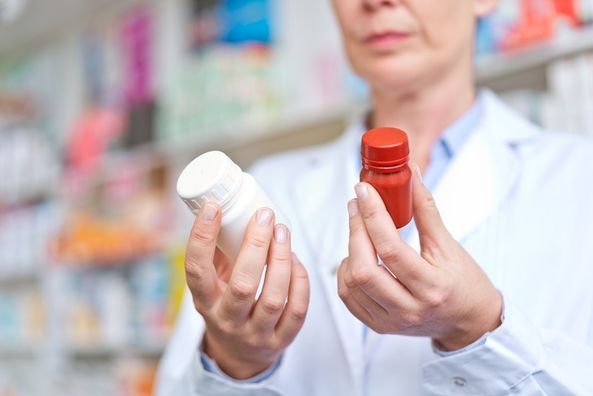The best way to stay healthy is to be proactive with your health. On average, men attend fewer preventive care appointments than women1. These important check-ins with your provider can help prevent the onset of diseases or potentially detect them early, so when men miss them, they are at a higher risk for developing certain diseases. Be sure you are up to date on the following preventive health screenings:
Colorectal cancer screening
One in every 23 men will be diagnosed with colorectal cancer in their lifetime2. Your risk of developing colorectal cancer is higher if you have a family history of the disease, are obese or regularly eat red or processed meat. A colonoscopy screening is a routine procedure to help providers detect this cancer. During this outpatient procedure, your provider will insert a tube with an attached microscopic camera into the rectum. The camera will help your provider view the intestines and remove any suspicious polyps so they can be biopsied.
You should schedule a colonoscopy starting at age 45 according to the new guidelines3. Although, your provider may suggest undergoing this procedure at a younger age if you have a family history of colorectal cancer or have irritable bowel syndrome (IBS). This procedure should be performed every 10 years if no abnormalities are found and you do not have any risk factors. Follow up colonoscopies should be performed every one to three years after an abnormal finding or according to your doctor’s individualized recommendation.
Heart disease
In the United States, heart disease is the leading cause of death for men4. Monitoring your blood pressure and cholesterol can help prevent the onset of heart disease and/or a heart attack. At annual checkups, your blood pressure is screened and recorded on your medical chart so your provider can track it over time. High blood pressure causes damage to the blood vessels which can impact blood flow to your heart. A normal blood pressure level is considered 120⁄80 mmHg according to the Centers for Disease and Control. If your blood pressure is higher than that, your provider may suggest lifestyle changes such as diet and exercise or prescribe medication that lowers blood pressure.
To screen your cholesterol, your provider will order bloodwork. The results will show your “good” or HDL cholesterol, “bad” or LDL cholesterol and triglyceride levels. LDL cholesterol and triglycerides are considered “bad” cholesterol because when they are elevated, you are more at risk of a heart attack5.
Prostate cancer
13 out of every 100 men will develop prostate cancer in their lifetime6. Prostate screenings can help detect the cancer in its early stages which can lead to better outcomes. Individuals with no risk factors should be screened for prostate cancer ever two to three years starting at age 55. However, your family history, symptoms and ethnicity are factors your provider will consider and they may encourage you to have a prostate screening at an earlier age.
There are two types of screenings for prostate cancer. A prostate-specific antigen (PSA) blood test screens for abnormal levels of the PSA protein. A digital rectal exam (DRE) is another method of detecting prostate cancer7. During this exam, your provider will feel inside the rectum for any bumps that could indicate cancer.
Skin cancer screening
Just like annual checkups, men are less likely to attend a yearly dermatology appointment. When men find a concerning mole on their skin, they are also less likely to schedule an appointment with a dermatologist to get it looked at. Skin checks, whether performed independently or by a dermatologist, can increase your chances of finding skin cancer early. It’s recommended that you perform skin self-exams each month and see a dermatologist yearly for a full body skin exam. A dermatologist will be able to examine parts of your body that may be hard for you to examine yourself such as your back, where skin cancer is commonly found on men8.
Other preventive measures
In addition to these annual checkups and screenings, follow these preventive measures to boost your overall health:
• Eat a healthy diet
• Exercise for 30 minutes daily
• Avoid tobacco use
• Limit alcohol intake
• Reduce stress
• Avoid risky activities such as extreme sports
Schedule an appointment with a primary care provider online or by calling your preferred location to discuss the best screening options for you.
1Ianzito, C. (2019, September 6). Why Men Don’t Go to the Doctor. In American Association of Retired Persons. Retrieved from https://www.aarp.org/health/he…
2Key Statistics for Colorectal Cancer (2021, January 12). In American Cancer Society. Retrieved from https://www.cancer.org/cancer/…
3American Cancer Society (2021, February 4). In When Should You Start Getting Screened for Colorectal Cancer?. Retrieved from https://www.cancer.org/latest-…
4Men and Heart Disease (2021, February 3). In Centers for Disease Control and Prevention. Retrieved from https://www.cdc.gov/heartdisea…
5HDL (Good), LDL (Bad) Cholesterol and Triglycerides (2020, November 6). In American Heart Association. Retrieved from https://www.heart.org/en/healt…
6Who Is at Risk for Prostate Cancer? (2021, February 24). In Centers for Disease Control and Prevention. Retrieved from https://www.cdc.gov/cancer/pro…
7Screening Tests for Prostate Cancer (2021, January 4). In American Cancer Society. Retrieved from https://www.cancer.org/cancer/…
8Stallings, MD, FAAD, A. F. (n.d.). Why More Men Than Women Get Skin Cancer. In Northwell Health. Retrieved from https://www.westchesterhealth.…
Health Topics:







